Atlas Fallen hands-on: substance, style and a solid fantasy romp
Is this Deck13’s slickest venture yet? Or will it be buried in the sand like all those Funkos?
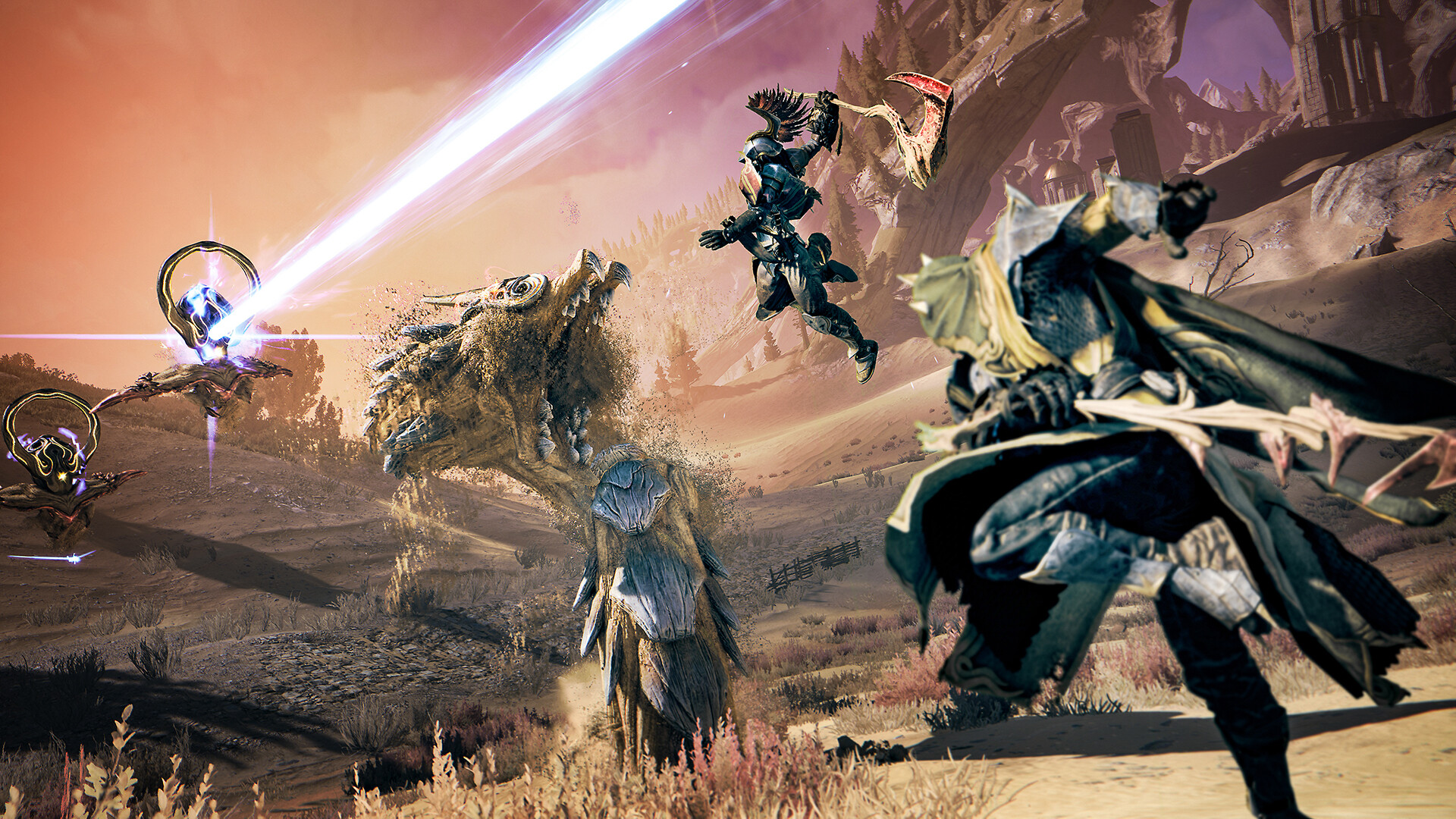
Just think back. You remember Enslaved: Journey to the West? Kingdoms of Amalur? Dragon’s Dogma? Not every game is created equal, and there are more than a few whose budgets clearly don’t compare to the Q4 blockbusters that get released each year. But that doesn’t stop them being compelling, fulfilling, and, crucially, fun. For the games above, they might not have become the long-lasting franchises that we were promised, but they live on in the hearts and minds of those that played them. Atlas Fallen, as we’ve seen in our hands-on time with the game, could well go on to achieve the same kind of heart-stealing glory.
We’ve had a good few hours to explore Atlas Fallen in its latest preview build ahead of the game’s release in May, and there’s heaps of potential here. It starts slow with an interior tutorial but once it opens out onto that desert – the core thematic pillar of the game – things really start to get their grips in.
For the elevator pitch, there’s a flavor of Darksiders, modern God of War and even Devil May Cry here. A lot of this influence comes from the combat, which quickly ramps up in the preview build to really make sure you’re paying attention.
Have a (sand)blast
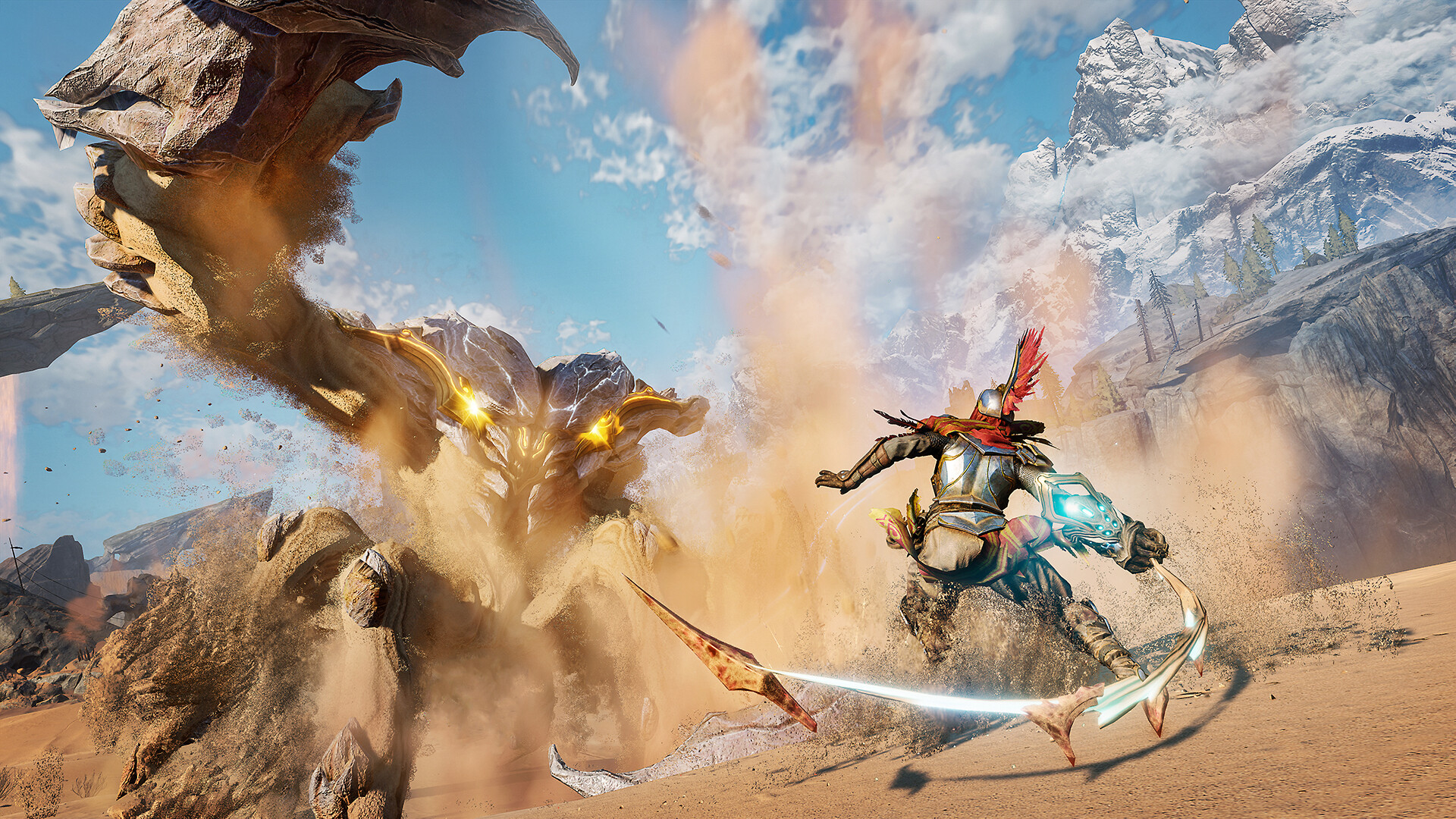
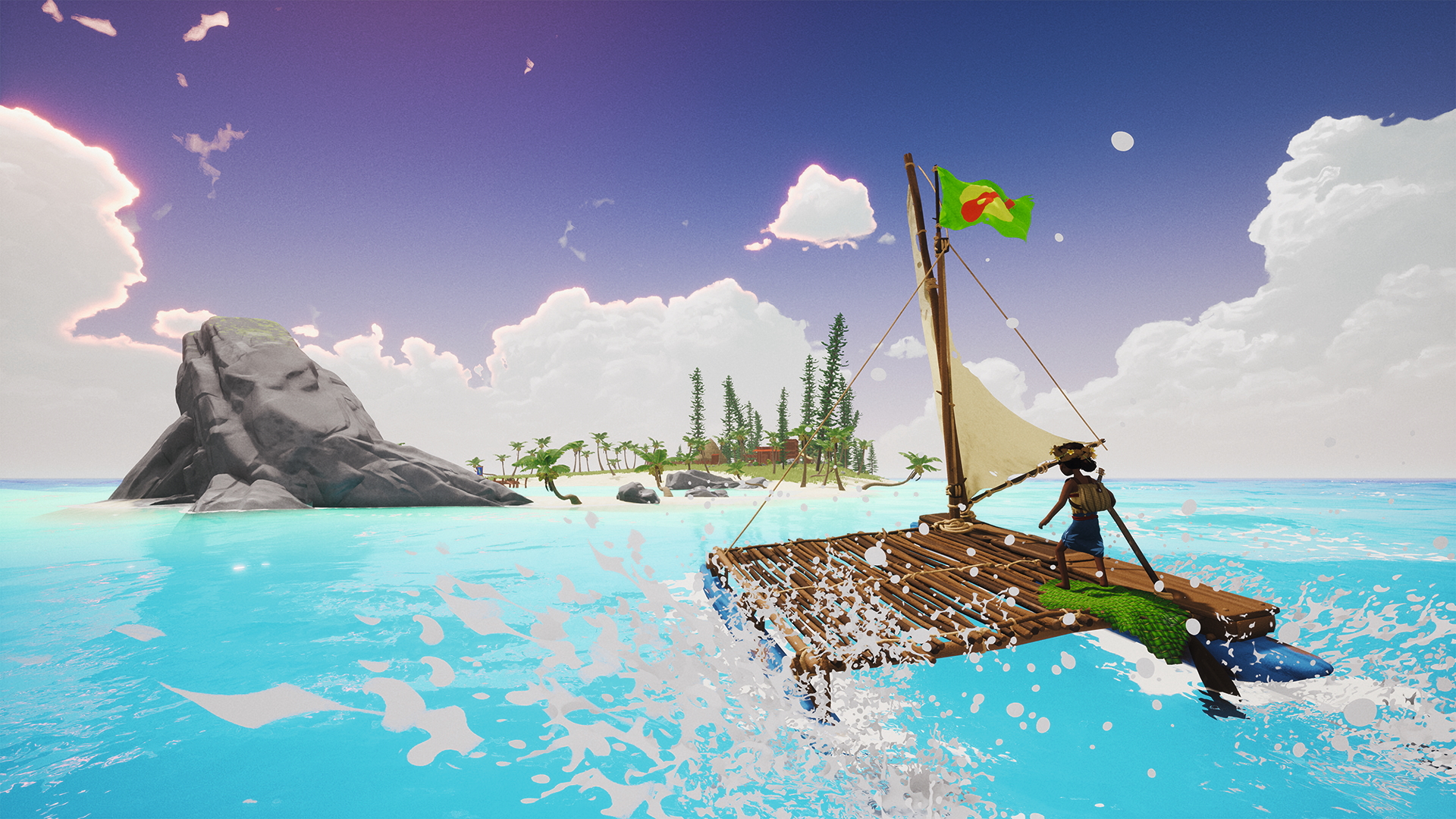
Upcoming PS5 games: All the new PS5 games for 2023 and beyond
With two weapons available that equate to a slow heavy attack and a fast attack with a longer range, combat at first felt like it might lean heavy on the hack 'n' slash framework, especially given the pace of battle. But after exploring the first village and really opening up that open world, even inconspicuous encounters were enough to floor me. It was here, at some random spot in the desert, that the game’s core lesson was taught: there are better ways to fight.
That Devil May Cry reference might seem a little outdated, but it mostly comes from the pace of movement in combat. Unlike Lords of the Fallen or The Surge, Atlas Fallen is zippy with a lot of dodging, blocking and countering needed to succeed, and transitioning between ground and air combat (a la Dante) is very common. It’s slick, actually, and as the build added more layers to what was possible it became a fairly deep aspect of the game.
A large part of this comes from the game's Momentum mechanic, a sort-of charging meter that gradually builds as you land strikes on enemies and generally perform well in combat. As your Momentum progresses mid-fight, you’ll unlock both passive boosts (to things like damage and defense in their most basic form) and active skills like a magical hammer strike on a single opponent. In other words, the strong get stronger, and that means you’ve gotta learn how to utilize all your combat options if you want to make the most of it.
This Momentum is customisable, however, and as you explore the world, opening chests and defeating enemies, you’ll increase your toolbox of options to help build out a play style that suits you. We didn’t have a heap of choices to go with during our preview time, but based on the menu tying into this feature it’s clear you won’t be limited for decisions.
Weekly digests, tales from the communities you love, and more
There is a crafting element to the game that ties into all of this too, meaning Essense Stones – the pieces that are equipped to your Momentum meter – can be increased in strength by adding random crafting materials you’ve collected in the world. This is arguably a little trite, certainly it’d be nice to have more compelling reasons to explore the dusty world of Atlas Fallen than a few petals for upgrades, but hopefully this won’t be a significantly distracting part of the experience when it releases in May.
Dune it right
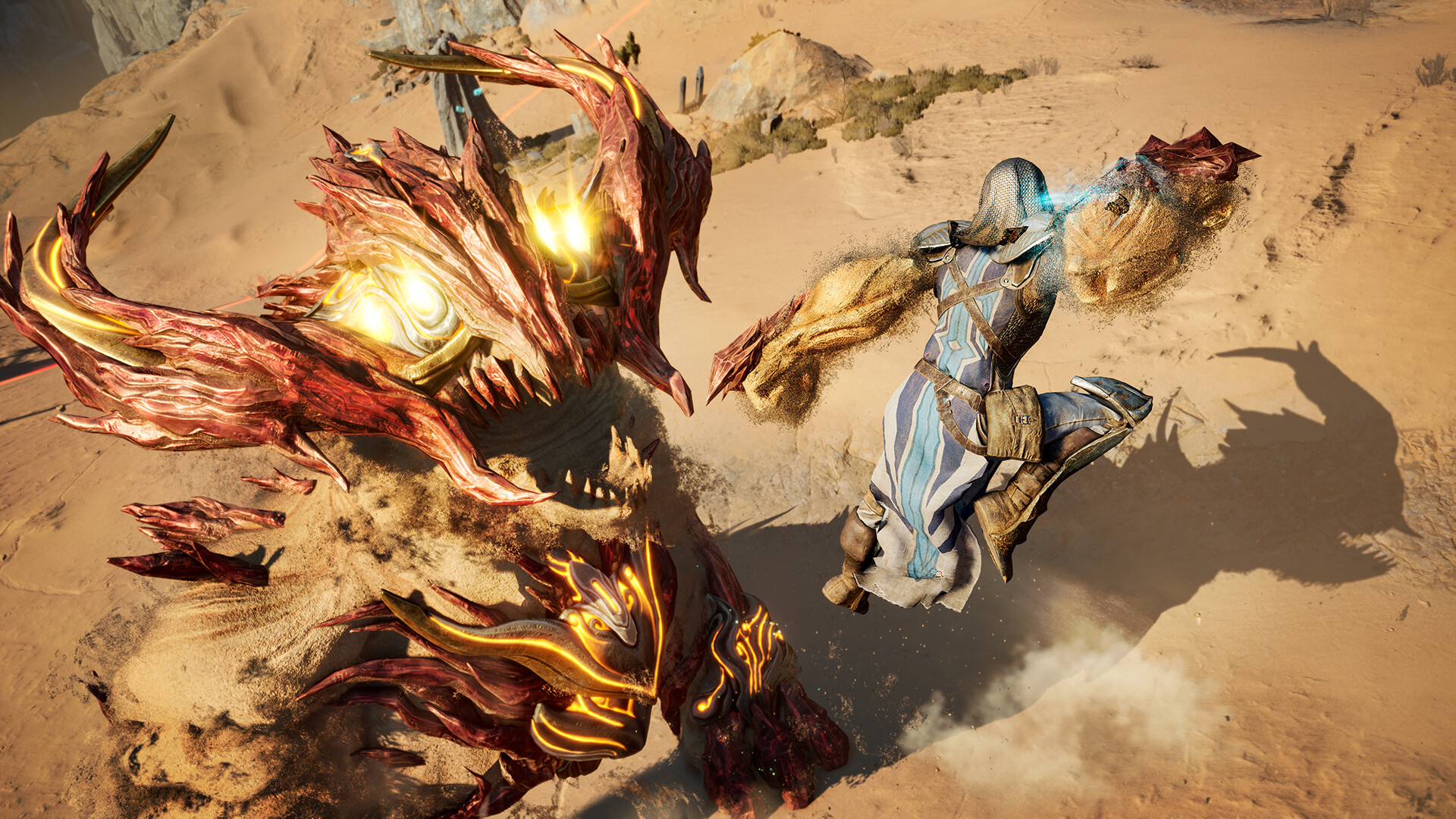
"It’s largely about the scale of everything that feels different about Atlas Fallen."
But exploration does look like it will be a big part of the game, given that it seems like you’ll be enhancing your movement skills as often as your combat ones. It feels fluid to move about the mountainous desert hills, which are way more visually stimulating than you might imagine. Your character has some connection to the sands via the Gauntlet strapped to their arm, and through this it’s possible to essentially sandboard your way around the environment, whether you’re going downhill or not. It adds some personality to something as simple as exploration, and does feel fun to glide about everywhere.
You’ll also be collecting Gauntlet Shards for a large part of Atlas Fallen, and this will unlock new abilities and enhance those you’ve already got. That, in turn, should give plenty of reasons to return to previous zones to fully explore them, though I didn’t get a sense of just how significant this Metroidvania approach will be in the end.
It’s largely about the scale of everything that feels different about Atlas Fallen. Dashing about the sands on the ground one moment, before scaling tall towers and leaping across large chasms the next. Actually, everything about Atlas Fallen seems to be built for fluidity, transitioning between exploration, combat and questing seamlessly and all at the behest of the player’s control. If this remains the case by the end of the final game, it could be the defining facet of the game that makes it into a winner.
Sand the test of time?
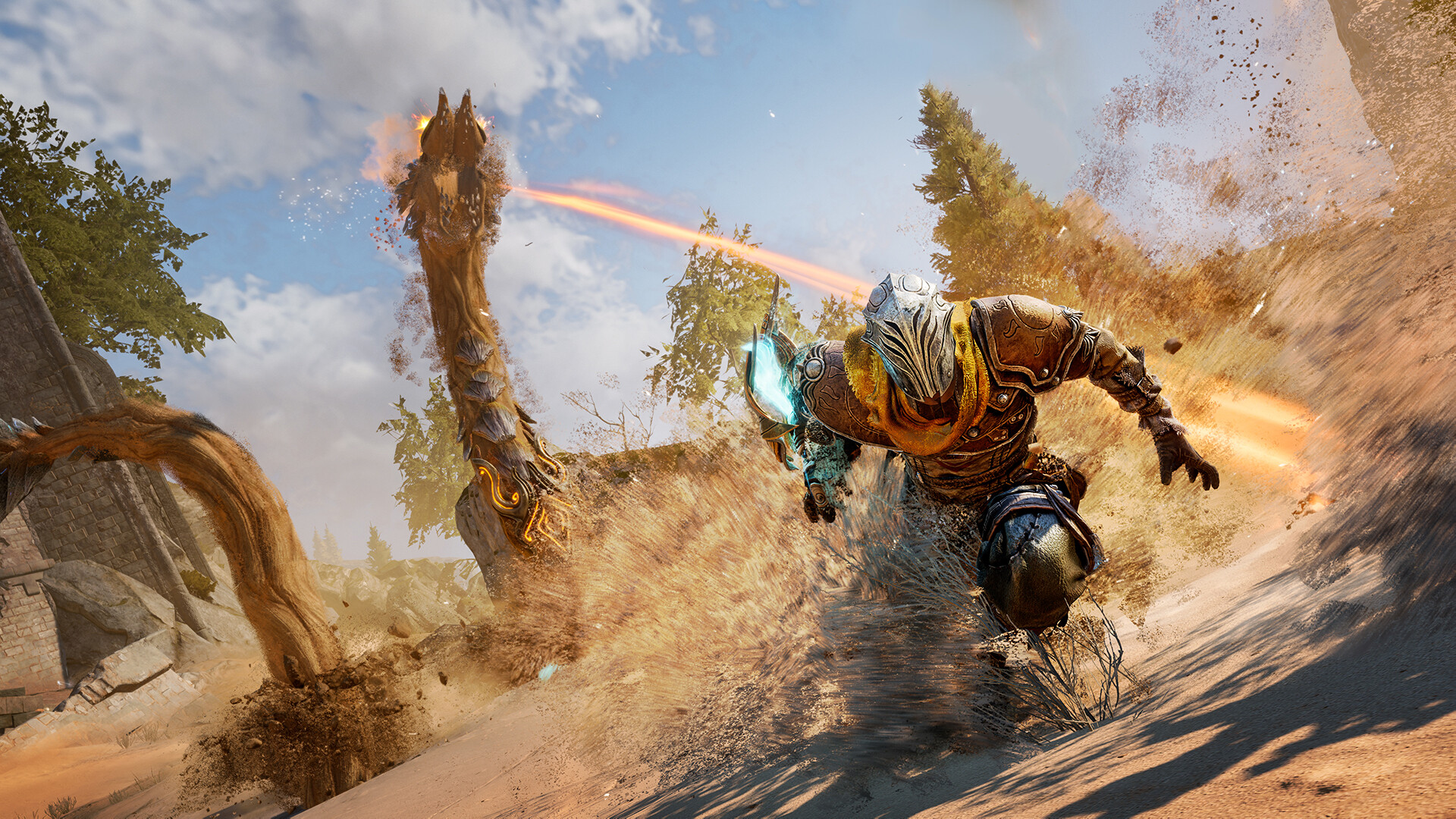
"It seems to stack on a lot of aspects to its RPG experience, and while that lack of focus can sometimes be problematic, it does seem like this could well be a solid fantasy romp."
There are some sticking points at this juncture, though. One feature introduced early on in the preview build is the ability to raise large chunks of stone as platforms to reach higher spaces. Initially, this is a simple environmental blocker, giving you a task to complete before you’re able to move on. But it didn't seem like that concept was really expanded upon once I reached the open world part of the build. The same stone-raising mechanic was used semi-frequently, but never in any inventive way – at best it was busy work that was distracting from the game's fluid exploration.
But it was also the primary objective of the preview section, to upgrade the Gauntlet so it was powerful enough to move an even larger chunk of stone to access the next area. There could be a lot more to this mechanic, but I'm a little worried it might be way more trivial and underutilized than it deserves. The same might end up being true for a lot of the questing in the game, too. From what we’ve seen there’s a rich and considered narrative underpinning everything in Atlas Fallen, all about the threat of the sun god and its behemoth Watcher, which is a constant visual landmark as you explore. There’s a lot of thought that’s gone into crafting this world, and while there are tidbits of collectible lore, a lot of it feels muted in execution. Particularly when it's alluded to that these could well be the end days for you and everyone around you.
It’s one thing to talk the talk about this all-powerful being and how the local village "might not be home for long" because of the threat posed to it, but if that danger is dealt with through trifling tasks like visiting lookout towers and clearing out some mines then it loses a good deal of its potency. The Watcher is a great visual reminder of the main purpose of the game, but if that constantly looming being just stares at us from the horizon for the majority of the game then it’s impossible to believe in the supposed fear of the big scary baddie.
But in the end that might be asking a tad too much from Atlas Fallen. The fact is that even in this fairly sizable preview build, I was left with a good impression. It seems to stack on a lot of aspects to its RPG experience, and while that lack of focus can sometimes be problematic, it does seem like this could well be a solid fantasy romp. If Deck13 can carefully balance all its intertwining parts and have enough variety in the final release to keep these distinct aspects of the game motivating throughout, then we might need the SPF50 if we’re gonna face off against a sun god in May.
Atlas Fallen will launch on PC, PS5 and Xbox Series X on May 16, 2023.
Our new games 2023 rundown is packed with excellent upcoming titles


